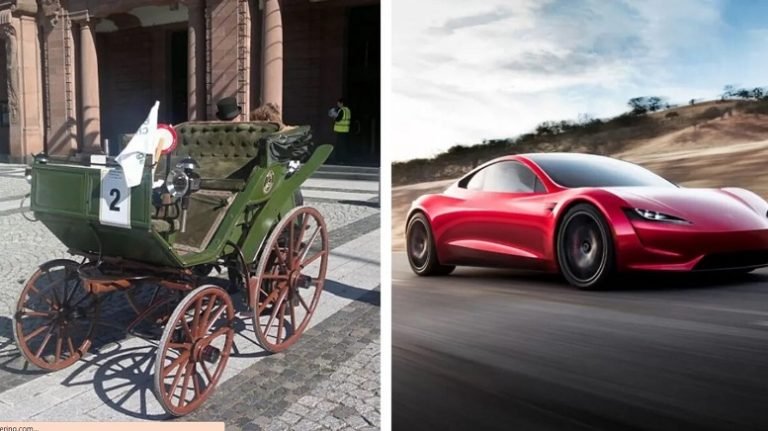Electric vehicles have been around for over a century, but it wasn’t until recently that they’ve become more mainstream and popular. In this blog, we’ll explore the history of electric vehicles, from their beginnings to where they stand today.
The Early Years
The first electric vehicle was built in 1828 by Hungarian physicist Ányos Jedlik. However, it wasn’t until the late 1800s that electric vehicles began to gain popularity as a means of transportation. In the early days, electric vehicles were seen as a clean alternative to gas-powered vehicles, which were often messy and smelly. By the early 1900s, electric vehicles were being manufactured by several companies and were becoming a popular choice for city driving.
However, the popularity of electric vehicles didn’t last long. The invention of the internal combustion engine and the availability of cheap gasoline made gas-powered vehicles more accessible and affordable. As a result, electric vehicles quickly fell out of favour and were mostly forgotten.
The Renewed Interest in Electric Vehicles
In the 1960s and 1970s, there was a renewed interest in electric vehicles. The oil crisis of the 1970s led to a shortage of gasoline and a rise in fuel prices. This prompted people to start exploring alternative forms of transportation, including electric vehicles.
In the 1990s, electric vehicles began to make a comeback. With advances in technology and the increasing concern for the environment, electric vehicles once again gained popularity. Today, electric vehicles are seen as a cleaner and more sustainable alternative to gas-powered vehicles.
The Advancement of Electric Vehicles
Electric vehicles have come a long way since their early days. Today, they are equipped with advanced features such as regenerative braking, which helps to conserve energy and extend the range of the vehicle. They also have high-performance motors that provide smooth and silent operation. Additionally, electric vehicle certification ensures that these eco-friendly cars meet stringent standards for safety, efficiency, and environmental impact, further boosting their credibility and adoption in the market.
Battery technology has also advanced significantly. Early electric vehicles had limited range and long charging times, but modern electric vehicles have much more powerful and efficient batteries. This allows them to travel further on a single charge and charge much faster.
In addition, electric vehicles have become more affordable. With the increasing demand for electric vehicles, the cost of production has decreased, making them more accessible to the general public.
The Future of Electric Vehicles
Electric vehicles are here to stay and are only going to get better. In the coming years, we can expect to see even more advanced electric vehicles, with longer range and faster charging times.
One of the biggest challenges facing electric vehicles is the lack of charging infrastructure. To address this, governments and companies around the world are investing in the development of charging networks. This will make it easier for people to charge their electric vehicles and increase the range of their vehicles.
In conclusion, the evolution of electric vehicles has been a fascinating journey. From their early beginnings to their current popularity, electric vehicles have come a long way. With continued advancements in technology and an increasing demand for sustainable transportation, electric vehicles are poised for an exciting future.
If you’re interested in learning more about electric vehicles, you can consider taking an Electric Vehicle Course. This will give you a deeper understanding of how electric vehicles work and the impact they are having on the world. With the increasing popularity of electric vehicles, a course in this area can also provide you with a valuable skill set in a rapidly growing industry.
Read Also: TURKISH AIRLINES DHAKA OFFICE CONTACT NUMBER
Conclusion
In conclusion, the evolution of electric vehicles has been a journey that spans over a century. From its early beginnings to its current popularity, electric vehicles have undergone significant changes and advancements. With a renewed interest in sustainable transportation and the increasing demand for electric vehicles, the future of electric vehicles looks bright. With advances in battery technology and charging infrastructure, electric vehicles are poised to become a mainstream form of transportation in the coming years. Taking an Electric Vehicle Course can help you gain a deeper understanding of the technology and provide valuable skills in a rapidly growing industry.

